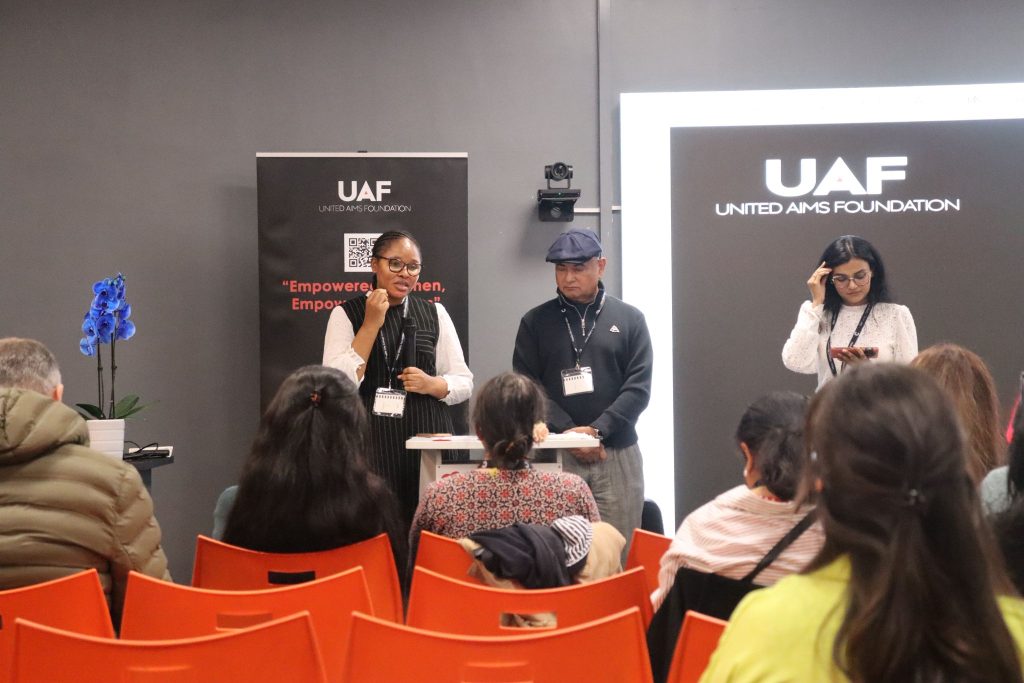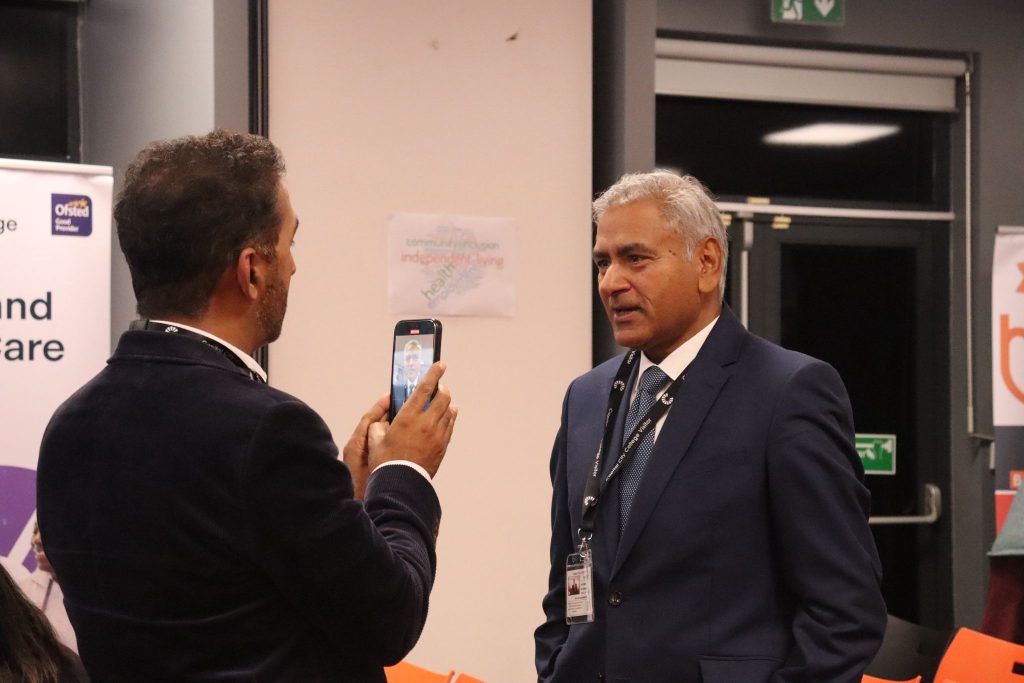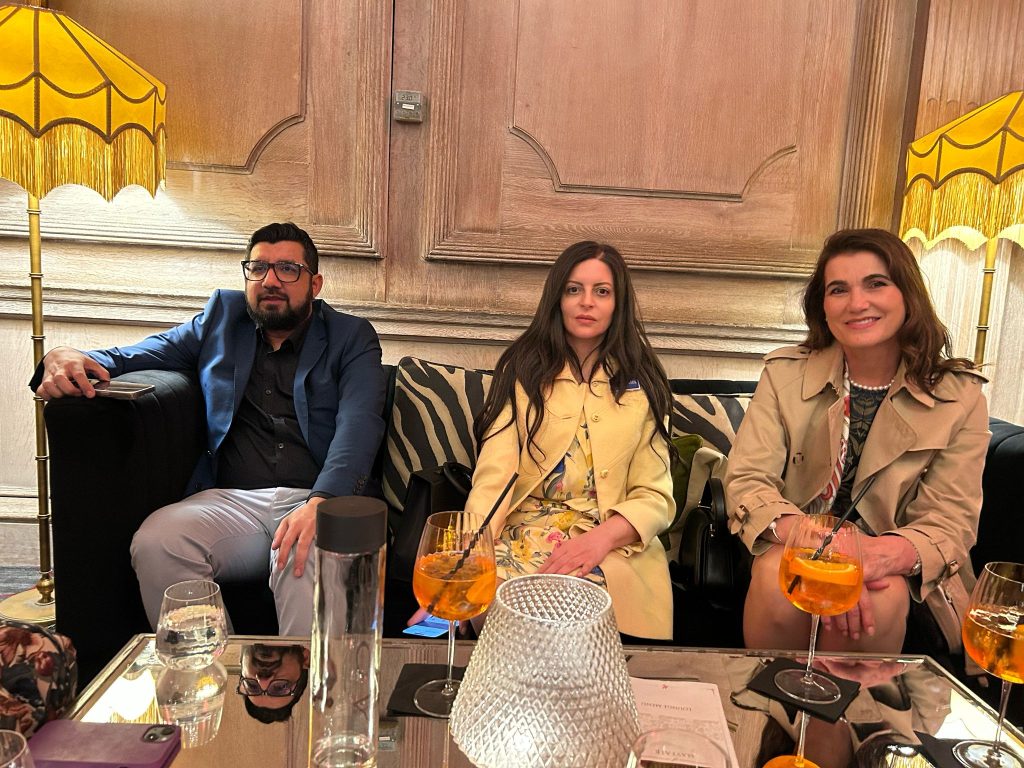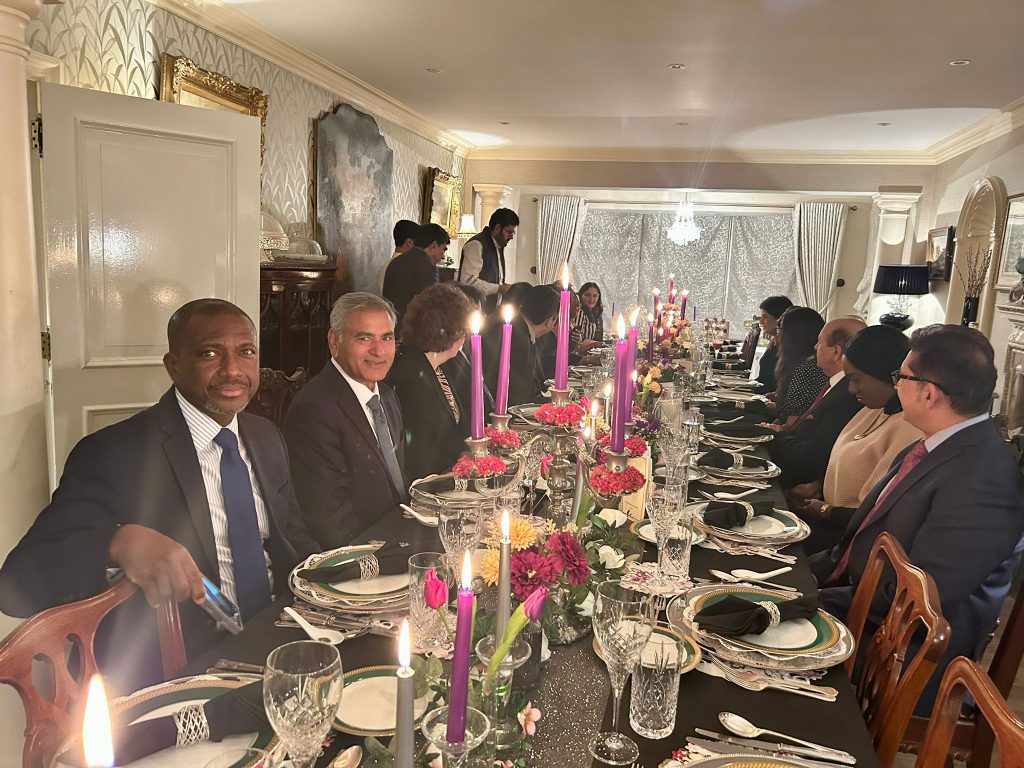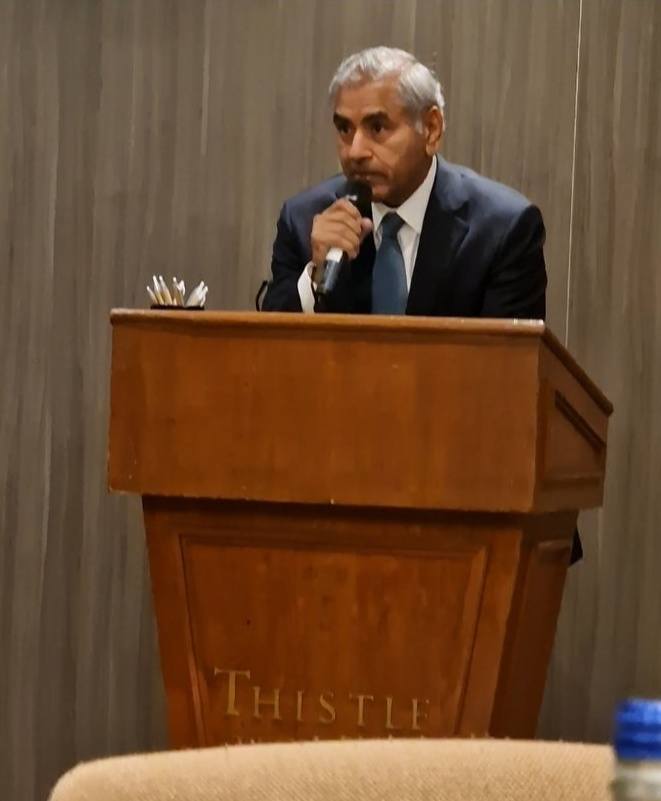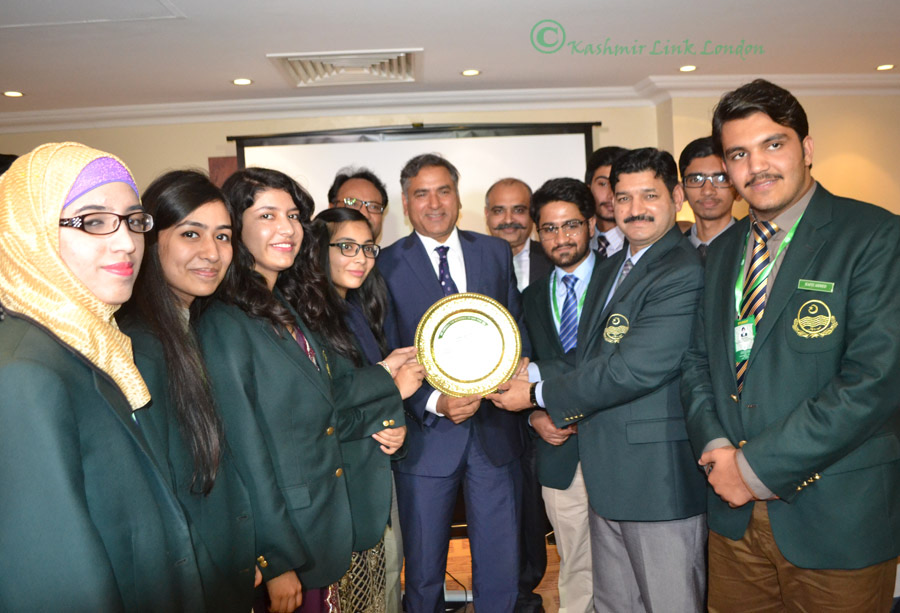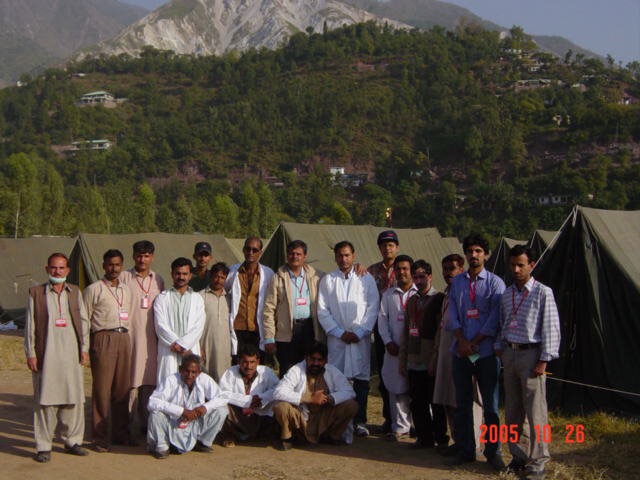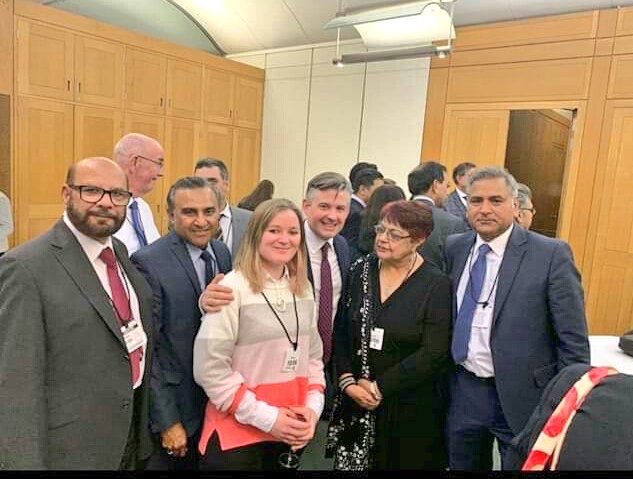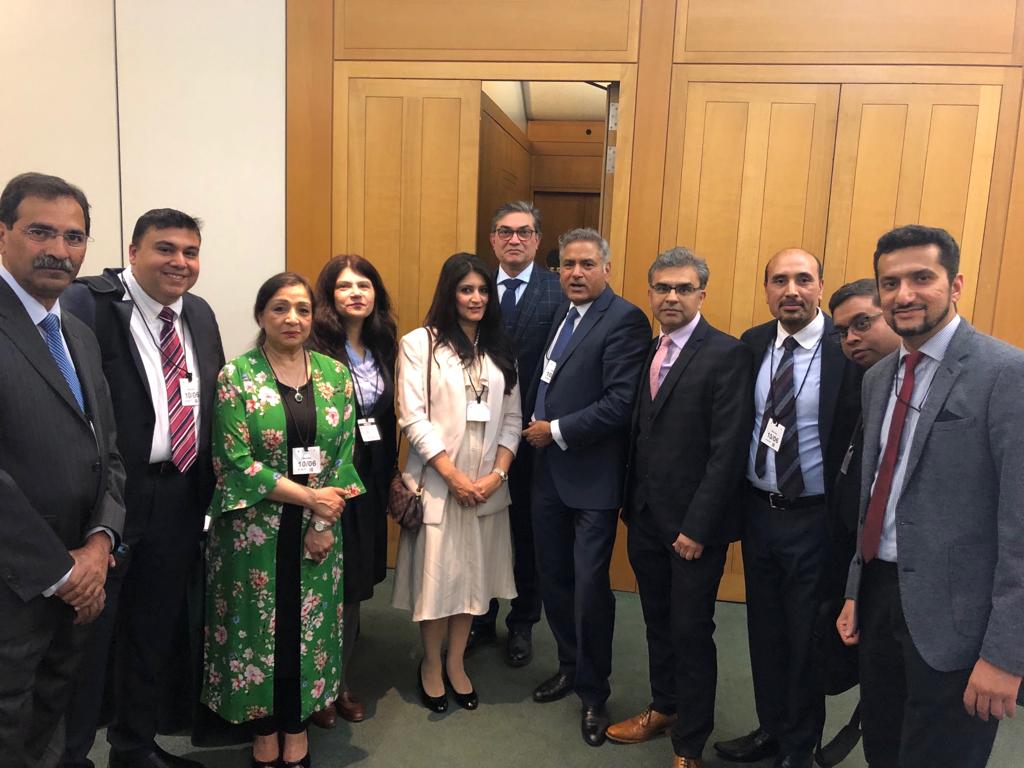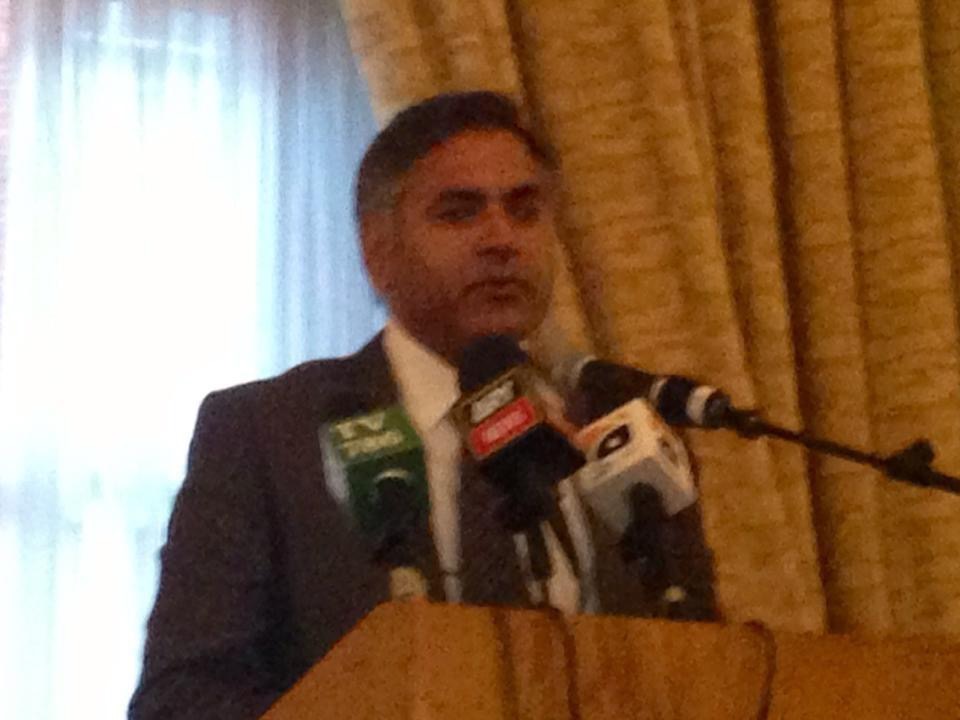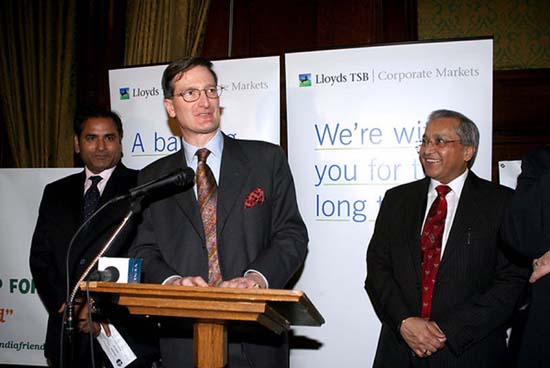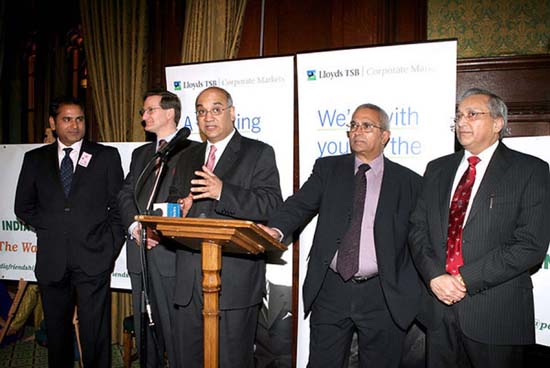Dr Ashraf Chohan Speaking at event for social integration and racial equality in London – 2024
2024

2024
As the United Kingdom enters 2024, the necessity of addressing racial equality is more critical than ever, particularly against the backdrop of growing activity by extreme political groups. These groups, often promoting divisive rhetoric, exacerbate societal tensions and threaten the social fabric. Ensuring racial equality is not only a moral imperative but also a prerequisite for a stable, inclusive, and prosperous society. Below are key aspects underscoring the importance of racial equality in the UK today.
Upholding Human Rights and Democratic Values
The UK has a long-standing commitment to human rights and democratic values, which are enshrined in laws such as the Equality Act 2010. However, the rise of extreme groups challenges these principles by normalizing hate speech, discrimination, and exclusion. Ensuring racial equality reinforces the nation’s commitment to fairness, justice, and respect for diversity, sending a clear message that racism and intolerance have no place in British society.
Combating Socioeconomic Disparities
Racial inequality manifests in significant socioeconomic disparities, including in education, employment, healthcare, and housing. Ethnic minorities in the UK often face systemic barriers that hinder upward mobility and perpetuate cycles of poverty. For example:
• Employment: Studies show that individuals from Black and Asian communities are less likely to be employed and are more likely to earn lower wages compared to their white counterparts.
• Healthcare: Disparities in health outcomes, such as higher maternal mortality rates among Black women, highlight systemic inequities.
Addressing these inequalities is crucial for creating a fairer society where everyone has an equal opportunity to succeed.
Strengthening Social Cohesion
The presence of extreme political groups often fosters division, creating an “us vs. them” mentality. This erodes trust among communities and undermines social cohesion. Promoting racial equality helps build bridges between diverse groups, fostering mutual understanding and reducing the likelihood of social unrest. A cohesive society is essential for maintaining peace and stability.
Counteracting the Influence of Extreme Groups
The growing influence of extreme groups poses a direct threat to marginalized communities, who often become targets of hate crimes and discriminatory policies. In 2024, combating the spread of extremist ideologies requires proactive measures, such as:
• Education: Promoting anti-racism education in schools to instill values of tolerance and inclusion.
• Legislation: Strengthening laws against hate speech and ensuring accountability for individuals and groups that incite racial hatred.
• Community Engagement: Empowering local communities to lead initiatives that promote unity and celebrate diversity.
Leveraging Diversity as a Strength
The UK’s diverse population is one of its greatest assets. Ethnic minorities contribute significantly to the economy, culture, and innovation. Embracing racial equality ensures that this diversity is harnessed for collective growth rather than being stifled by prejudice and exclusion. A society that values and respects all its members is better positioned to compete in a globalized world.
Moral and Global Responsibility
As a leading nation, the UK has a responsibility to set an example in promoting equality and combating racism. Failure to address racial inequality risks damaging the country’s international reputation and undermining its influence on the global stage. By championing racial equality, the UK can reinforce its commitment to universal human rights and inspire other nations to follow suit.
Conclusion
In 2024, the need for racial equality in the United Kingdom is more pressing than ever. As extreme groups seek to divide society, the government, institutions, and citizens must work together to promote inclusion, combat discrimination, and ensure equal opportunities for all. Racial equality is not merely a social goal; it is a cornerstone of democracy, justice, and national unity. The UK’s future depends on its ability to embrace its diversity and build a society where everyone, regardless of race or ethnicity, can thrive.

In 2023 Dr. Chohan was honoured with the UPFP Award Winner of the Year certificate, in recognition of his dedicated services towards promoting integration, fostering mutual understanding, and strengthening relationships among all communities living in the United Kingdom.

2010
The Pakistan, India and UK Friendship Forum hosted their 5th Annual Dinner at the House of Lords with its usual cordial atmosphere of friendship and mutual respect. The message of the dinner was “Friendship is the only way forward”. It started with the national anthems of Pakistan, India and Britain and one minutes silence was observed in the memory of the victims of the horrific floods in Pakistan.
2005 Kashmir Earthquake
Under the banner of Human Care Trust, Dr. Chohan travelled to earthquake-affected areas in Kashmir to provide medical assistance to those injured in the disaster. A fully functional operation theatre was established within a camp, where Dr. Chohan and his team performed numerous surgical and orthopaedic procedures. Many of the patients, hailing from remote and hard-to-reach villages, were brought to the camp by dedicated volunteers using motorbikes, ensuring timely treatment for those in desperate need.
The Massive Earthquake in Kashmir:
Nearly two decades ago, on October 8, 2005, a devastating earthquake struck the Kashmir region, leaving an indelible mark on the lives of millions. Measuring 7.6 on the Richter scale, the earthquake’s epicentre was near Muzaffarabad, the capital of Azad Jammu and Kashmir (AJK), Pakistan. It resulted in catastrophic destruction:
• Over 86,000 people lost their lives, with hundreds of thousands injured.
• Entire towns and villages were flattened, particularly in Muzaffarabad, Balakot, and surrounding mountainous areas.
• Around 3.5 million people were displaced, with severe shortages of food, shelter, and medical care.
• The region’s infrastructure, including roads, schools, and hospitals, was extensively damaged, making rescue efforts extremely challenging.
The earthquake highlighted the need for immediate humanitarian assistance, long-term rehabilitation, and disaster preparedness. Many organizations and individuals, like Dr. Chohan and Human Care Trust, played a crucial role in providing life-saving medical aid, helping rebuild communities, and supporting those affected through ongoing relief efforts.
Dr Chohan was awarded by the chairman of Red Crescent Dr Elahi for the work done during Earthquake.
2023
Dr Chohan speaking at event to highlight achievements by individuals from ethnic communities.
Many individuals from British minority communities have made outstanding contributions in various
Politics & Public Service
Rishi Sunak (Indian heritage)
• Position: Prime Minister of the UK.
• Contribution: First British Asian and Hindu Prime Minister. Former Chancellor of the Exchequer, leading UK’s financial policies during COVID-19.
Sadiq Khan (Pakistani heritage)
• Position: Mayor of London.
• Contribution: First Muslim Mayor of a major Western capital. Advocated for diversity, inclusion, and transport reforms.
Priti Patel (Indian-Ugandan heritage)
• Position: Former Home Secretary.
• Contribution: Held one of the highest offices, influencing national immigration and security policies.
Business & Innovation
Sir Mo Ibrahim (Sudanese heritage)
• Field: Telecommunications, Philanthropy.
• Contribution: Founder of Celtel, major African telecom company. Created the Ibrahim Prize for African Leadership, promoting good governance.
Sir Anwar Pervez (Pakistani heritage)
• Field: Retail.
• Contribution: Founder of Bestway Group, one of the UK’s largest wholesale businesses. Major philanthropist.
Arts, Media & Literature
Zadie Smith (Jamaican heritage)
• Field: Literature.
• Contribution: Internationally acclaimed author of novels like White Teeth, representing multicultural Britain in global literature.
Riz Ahmed (Pakistani heritage)
• Field: Film & Music.
• Contribution: First Muslim and South Asian actor to win a lead acting Emmy (for The Night Of). Also an activist and rapper.
Malorie Blackman (Caribbean heritage)
• Field: Literature.
• Contribution: Renowned author of the Noughts & Crosses series. Served as Children’s Laureate, promoting diversity in literature.
Science & Technology
Dr. Maggie Aderin-Pocock (Nigerian heritage)
• Field: Space Science.
• Contribution: Prominent space scientist and BBC science presenter. Advocate for STEM education and women in science.
Music & Entertainment
Stormzy (Ghanaian heritage)
• Field: Music.
• Contribution: Global grime artist, outspoken on social issues, and philanthropist supporting education for Black students.
Naomi Campbell (Jamaican-Chinese heritage)
• Field: Fashion.
• Contribution: One of the world’s top supermodels, breaking racial barriers in the fashion industry.
Sports
Sir Mo Farah (Somali heritage)
• Field: Athletics.
• Contribution: Multiple Olympic gold medalist in long-distance running. One of Britain’s greatest athletes.
Marcus Rashford (Caribbean heritage)
• Field: Football.
• Contribution: England footballer and activist, led a campaign to combat child food poverty, influencing government policy.
Law & Judiciary
Baroness Patricia Scotland (Dominican heritage)
• Position: Secretary-General of the Commonwealth, former Attorney General.
• Contribution: First Black woman to hold the office of Attorney General for England and Wales.
Medicine & Healthcare
Professor Dame Parveen Kumar (Indian heritage)
• Field: Medicine.
• Contribution: Renowned physician, co-author of the widely used medical textbook “Kumar & Clark’s Clinical Medicine”.
Dr Chohan speaking on the diversity of the UK giving details of different ethnic population in the UK.
The key British communities, their estimated population numbers, and main demographic characteristics:
Summary of British Communities (2021-2024 Estimates)
Community / Ethnic Group
Approx. Population
% of UK Population
Key Characteristics & Demography.
White British
48 million
82-85%
Predominantly Christian, aging population, spread across UK, socio-economically varied.
Indian
1.8 million
3%
Mostly Hindu & Sikh, urban (London, Leicester, Birmingham), well-educated, middle class.
Pakistani
1.6 million
2.5%
Mostly Muslim, younger population, concentrated in Birmingham, Bradford, Manchester.
Bangladeshi
700,000
1.1%
Muslim, younger demographic, concentrated in East London, lower socio-economic status.
Black African
1.5 million
2.4%
Predominantly Christian, concentrated in London & Midlands, younger, growing community.
Black Caribbean
600,000
1%
Christian, settled mainly in London, Birmingham, Bristol, older demographic profile.
Chinese
450,000
0.7%
High educational attainment, urban centers & university towns, low crime rates.
Mixed Ethnic Groups
1.8 million
3%
Young, growing group, often urban, reflects social integration and intermarriage.
Other Asian (Filipino, Arab, etc.)
1 million
1.6%
Urban, religious diversity, engaged in healthcare, service sectors.
Eastern European (Polish, Romanian, etc.)
3.5 million+
5-6%
Mostly Catholic/Orthodox, working-age, post-Brexit migration shifts, concentrated in cities.
Middle Eastern & Arab
500,000-600,000
~1%
Recent refugee influx, primarily Muslim, urban areas, integration challenges.
Gypsy, Roma, Traveller
300,000
0.5%
Nomadic/semi-nomadic, facing health & education inequalities, cultural traditions.
Jewish
270,000
0.4%
Mainly in London & Manchester, Orthodox & Reform Judaism, strong community institutions.
Sikh
520,000
0.8%
Primarily in Midlands & London, strong family/community networks, relatively prosperous.
Hindu
1 million
1.6%
Concentrated in cities, especially London & Leicester, well-educated, middle class.
Muslim (all ethnicities)
3.9 million
6.5%
Growing population, younger, urban-based, mainly South Asian, Middle Eastern, African.
Non-religious / No religion
~25 million+
37%+
Fastest-growing group, especially among White British & younger generations.

2014
Dr Chohan speaking in Pakistan centre in East London on “What can be done to make British Pakistanis more integrated in The UK society “
Contents of speech
British Pakistanis have contributed massively to UK society, but like any large community, there are always ways to encourage stronger integration while respecting cultural identity. Here’s a mix of actionable ideas (policy-level, community-level, and individual-level) that could make a difference:
– Education & Representation
• Curriculum Inclusion: Include more British Pakistani history, literature, and success stories in school curricula to build shared understanding.
• Diverse Role Models: Promote British Pakistanis in media, politics, business, sports, etc. Representation breaks stereotypes and encourages participation.
-Economic Empowerment
• Entrepreneurship Support: Tailored programs to support British Pakistani entrepreneurs, especially women and young people, with access to funding, mentorship, and networks.
• Skills Training: Focused upskilling (digital skills, language support, leadership training) to increase presence in a wider range of professions.
-Social & Cultural Exchange
• Community Events: Foster cross-cultural events (food festivals, sports, arts) involving all communities, not just in Pakistani-majority areas.
• Interfaith Dialogues: Encourage open conversations between mosques, churches, temples, and secular groups to foster mutual understanding.
-Tackling Social Barriers
• Address Discrimination: Stronger enforcement of anti-discrimination policies in employment, housing, and public services.
• Media Responsibility: Encourage responsible media coverage that avoids reinforcing negative stereotypes.
-Political Engagement
• Voter Education: More initiatives to encourage British Pakistanis to vote, stand for office, and participate in civic duties.
• Community Representation: Support for young British Pakistanis to take leadership roles in local councils and national politics.
-Language & Integration Programs
• Accessible English Language Classes: Especially targeting older generations and women who may face barriers due to language.
• Integration Workshops: Programs that help newcomers understand UK laws, cultural norms, and civic responsibilities.
Long-Term Impact:
The key is two-way integration: encouraging British Pakistanis to fully participate in broader society while society itself makes room for their identity and contributions.
2017
Location: Portcullis House, British Parliament
In 2017, Dr. Chauhan hosted an important event at Portcullis House, British Parliament, to highlight the growing challenges faced by doctors, nurses, and healthcare staff working within the NHS. The event was attended by Members of Parliament, along with doctors and nurses from across the country, providing a platform to openly discuss the key issues affecting the NHS workforce.
Several pressing matters were brought to light during the session, including:
• Salaries: Concerns were raised regarding pay levels not reflecting the workload and responsibility carried by NHS staff.
• Working Hours: Attendees discussed the strain caused by long, demanding shifts and the impact on staff well-being.
• Pensions: The need for fair and secure pension schemes was underlined as an area requiring attention.
• Waiting Lists: The increasing length of patient waiting lists was highlighted, along with potential steps to reduce delays and improve patient access.
• General Practice Challenges: Specific focus was given to the pressures faced in general practice, such as staff shortages, increasing demand, and administrative burdens, with suggestions made to improve working conditions.
Further key points addressed included:
• Mental Health and Well-being of NHS Staff: The importance of supporting the mental health of healthcare professionals was emphasised, with calls for better access to support services and counselling.
• Training and Career Development: The need for continuous professional development and access to training opportunities to help staff keep pace with advances in healthcare.
• Recruitment and Retention: Strategies were discussed to attract new talent into the NHS and retain experienced staff, particularly in areas facing workforce shortages.
• Workplace Safety and Resources: Ensuring safe, well-equipped working environments was highlighted as essential for both staff and patient care.
• Public Access and Health Education: Ideas were shared to make NHS services more accessible, particularly for vulnerable groups, and to encourage public health awareness to ease the pressure on frontline services.
The event concluded with a strong consensus on the need for practical, meaningful reforms to improve conditions for NHS staff and ensure the long-term sustainability and effectiveness of the healthcare system.

Distinguished Guests, Respected High Commissioner, Members of the Community, Ladies and Gentlemen,
It is an honour to stand before you today at this important gathering organised by the Overseas Pakistan Trust. We come together not only to celebrate our shared heritage but to reflect upon the challenges and opportunities facing the British Pakistani community in the United Kingdom.
I wish to focus my remarks on a subject of utmost importance: the need for our community to prioritise education, particularly in the fields of Mathematics, Science, Technology, Law, and Medicine.
Education: The Bridge to Integration and Progress
Education is not merely a tool for personal advancement; it is the foundation upon which societies build bridges between communities. For the British Pakistani community, it is the key to overcoming barriers, dispelling misconceptions, and ensuring that our young people take their rightful place as valued contributors to the nation.
I urge parents, educators, and community leaders to encourage our children to pursue excellence in disciplines such as Mathematics, Science, and Technology. These fields are not just academic pursuits; they represent the driving forces of the modern world. We must also continue to support careers in Law and Medicine, where the presence of British Pakistanis has already made significant strides.
Why This is Essential
Breaking Economic and Social Barriers
Through academic and professional success, we can break the cycle of economic marginalisation that has affected parts of our community. A focus on higher education opens doors to meaningful careers, financial stability, and social mobility.
Representation in Key Sectors
Our increased presence in professional sectors is vital. When we see British Pakistanis as doctors, scientists, engineers, lawyers, and innovators, we not only inspire the next generation but also reshape how society views our community.
Countering Negative Stereotypes
Sadly, our community has at times been associated with harmful and inaccurate stereotypes — whether it be the stigma of child grooming scandals, or the narrative of communities living isolated in ghettos, unwilling to integrate. Let me be clear: these narratives do not define us. Education and achievement are the most powerful tools we have to silence these misconceptions and show who we truly are — a community rooted in hard work, integrity, and aspiration.
Moving Beyond Isolation
We must encourage our youth to mix, collaborate, and build relationships beyond the confines of our own communities. Education not only equips them with knowledge but also with confidence, cultural understanding, and the ability to navigate the wider society without losing sight of their heritage.
Empowering the Next Generation
Ultimately, our goal is to empower the next generation of British Pakistanis to lead — not only within our community but across British society at large. It is through education that they will find the tools to challenge injustices, build businesses, contribute to science and technology, and engage in the democratic processes that shape the future of this country.
My message
In conclusion, I call upon every parent, teacher, community leader, and young person here today:
Invest in education. Invest in yourselves. Invest in the future of our community.
Let us bridge the gap between communities, dispel the myths that seek to divide us, and build a stronger, more united British society where the British Pakistani community stands tall, respected, and fully integrated.
Thank you.
2018
DR Chohan speaking at an event on the need of integration in the British society particularly focusing on the British Pakistani Society. The event was hosted by British Pakistani community and was widely covered by Pakistani media, including Geo TV ARY TV and other media.

2023
Location: Carlton Club London
Subject: Dinner & Discussion – NHS Doctors from Pakistan Army Medical Corps
In 2023, Dr. Chohan hosted a special dinner event at the Cotton Club, focusing on the contribution of doctors from the Pakistan Army Medical Corps working within the NHS. The event was held in honour of the visiting Surgeon General of the Pakistan Army, Lieutenant General Nigar Johar, the first woman to hold this prestigious position in Pakistan’s history.
The purpose of the evening was to facilitate open discussion around the training, placement, and working conditions of these doctors, who typically spend two years serving within the NHS before returning to their posts in Pakistan’s military medical services. Given the ongoing shortage of doctors across the United Kingdom, the conversation naturally extended to how this collaboration could be further strengthened to benefit both the NHS and the Pakistan Army Medical Corps.
Key topics included:
• The need for more structured training programs tailored to doctors arriving from Pakistan, ensuring they are well-equipped to meet NHS standards and expectations.
• Improving the process of integrating these doctors into the UK healthcare system, including support for adapting to local working practices and patient care protocols.
• Discussions around expanding the number of placements available to accommodate more doctors from Pakistan, especially in areas facing staff shortages.
• Addressing the challenges faced by overseas doctors in terms of working conditions, cultural adjustments, and professional development opportunities while in the UK.
Another important aspect of the event was the emphasis on promoting diversity and inclusion within the NHS workforce. It was recognised that doctors from varied racial and cultural backgrounds play a crucial role in enriching the healthcare system, and there was a shared commitment to ensuring fair treatment, equal opportunities, and supportive environments for all.
The dinner provided a valuable opportunity for cross-border dialogue, fostering stronger ties between the UK and Pakistan’s medical communities. The discussions reflected a common goal—to improve healthcare delivery, provide meaningful training experiences, and ensure that both the NHS and the Pakistan Army Medical Corps benefit from continued collaboration.

The Pakistan, India & UK Friendship Forum again celebrate jointly the independence days of the respective countries, this time in the House of Lords – 2009
2011
Speech of Dr Ashraf Chohan
16th August
Pakistan India UK friendship forum
Distinguished Ladies, & Gentleman
I welcome you all here today where we have gathered to celebrate the 60th Anniversary of Independence Day of Pakistan and India jointly in Britain. This Forum is of British Asians living in the United Kingdom. This Forum is to promote understanding, harmony and friendship amongst the British Asians in particular and among all other communities of the United Kingdom in general.
According to the 2001 UK Census, there are 2.33 million British Asians making up to 4% of the population of the United Kingdom. This further sub-divides to 1.05 million of Indian origin, which constitutes 1.8% of the population, approximately 800 thousand of Pakistani origin, which is about 1.4% of the population and about 250,000 of Bangladesh origin and the same number of people from other Asian origins. The British Asian nations make up half of the UK’s non-European population.
No-one actually knows the earliest origins of the settlement of South Asians in the British Isles for certain. If the gypsies are included in the earliest arrivals this may have been in the middle ages. People from South Asia have settled in Great Britain since the East India Company recruited Lascars to replace vacancies in their crews on East Indiaman while on voyages in India. Many were then refused a passage back, and were marooned in London. There were also some Ayas, domestic servants and nannies of wealthy British families who accompanied their employers back to British when their stay in Asia came to an end.
Following the Second World War and the break-up of the British Empire, Asian migration to the UK increased through the 1950’s and 1960’s from Commonwealth Countries such as India, Pakistan and Bangladesh. Manual workers were recruited to fulfil the labour shortage that resulted from World War Two. They included Anglo-Indians who were recruited to work on the railways as they had done the same in India. Workers mainly from the Punjab region of India and Pakistan arrived in the 1950’s and 1960’s who worked in the foundries of the Midlands and a large number worked at Heathrow Airport in West London. At the same time medical staff in the Indian sub-continent was recruited for the newly found National Health Service. During the 1960’s and 1970’s a large number of East African issues who already held British passports entered the UK after they were expelled from Kenya, Uganda and Zanzibar.
When the employment opportunity shrunk in the UK the majority of British Asians became self-employed. They opened stores and corner ships and gradually got involved in relatively bigger businesses. Now in 2007 in the cutting edge of British entrepreneurial industry the British Asian businesses extend from manufacturing to finance, from food to hospitals, from pharmaceuticals to fashion. The Asian business sector has developed faster than the rest of the country.
In spite of this glorious looking picture, the community itself remains divided, largely due to the unfriendly relationship between India and Pakistan.
Since the creation of these two nations there have been many wars fought with occasional incidents of gun shots at the border. The conflicts were because of the problems these countries inherited; particularly Kashmir and the relationship came to its worst around 1970 at the time of the creation of Bangladesh.
Every now and then both the countries shuttle from peace to conflict. In the year 1998, if India conducted a Bokhran nuclear test, Pakistan retaliated by conducting such nuclear tests at Baluchistan.
These two countries have a huge population. Poverty levels are horrific; illiteracy is still a major problem. Access to safe water and sanitation remain a pipe dream for most people and disease is endemic.
Relationships with Pakistan and India are less tense than they used to be but still subject to eruption with a startling suddenness on the most unexpected of provocations. India and Pakistan share the same history, anguish and pain, identical taste of curry to costume. Whenever there is an effort to carry out a peace process, people across the border are overwhelmed by emotions. Whenever a bus crosses the border it carries the memories of the past and hopes in many eyes that they will meet again the people they have left behind. Whenever there is union there is a tug of emotion and a wrench when they part again.
Let us fight together to bring peace by looking within ourselves where we have any innate bias or hatred for the people of other countries or communities and to try to reduce it by asking ourselves why do we have such tendencies? There should be discussions and debates between friends and family members in the platforms such as Pakistan India and UK Friendship Forum and issues of communalism and faith to try to change our minds towards fair judgements above everything, including history and religions.
Please join our crusade against hatred and war between India and Pakistan and promote peace across the world. Let’s try to forget the past and spread the message of love and peace around.

Brit Sikhs celebrate Baisakhi in style
Official UK Launch Of The Pakistan India & UK Friendship Forum on The 8th February 2007 At The House Of Commons
The Pakistan India & UK Friendship Forum was launched on the 8th of February at the House of Commons by the British Parliamentarians. This is the third chapter of the organisation. The first chapter was established in 2003 in Pakistan, followed by the Indian chapter in 2004 and next year it will be established in the UAE. The Forum believes that people to people contact is the way forward.




